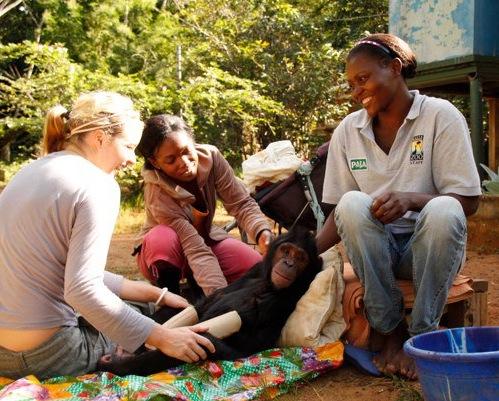
Frontline magazine, the publication of physiotherapists, has published an article about our work in Cameroon. It reads:
"A Bristol neurophysiotherapist has been using her specialist skills to treat disabled apes in Cameroon.
"'Primates are very similar to us physiologically, so I thought those with neurological problems might benefit from neurophysiotherapy in the same way humans do,' says Kirsty Godwin-Pearson, left, a volunteer with charities Ape Action Africa and In Defence of Animals.
"Kirsty's patients, during a stint at the charities' sanctuaries last month, were survivors of the international "bushmeat" trade - the killing of endangered species, including gorillas and chimps, for luxury meat.
"One chimp was paralysed from the neck down. For year, Kirsty sent advice to his keepers on stretches and positioning, monitoring his progress by video. During her visit she worked on an intensive physiology regime for him, aided by a specially-made walking frame to help him mobilise on all fours.
"'We were in the middle of the rainforest, a day's travel from the nearest town, with no running water or electricity, and I woke up one night with a black cobra in my bed!' says Kirsty, whose usual work is in the NHS and at her private practice Bristol Neurophysio. 'But it was fantastic to see the progress the apes made, and I'm already planning my next visit.'"
Written by Janet Wright